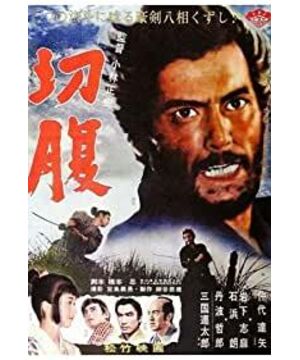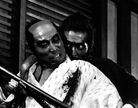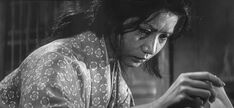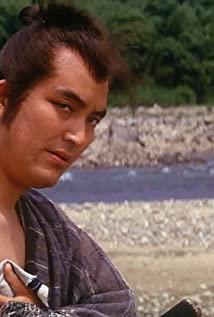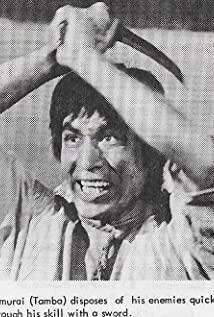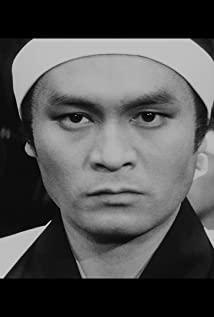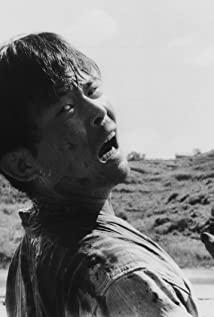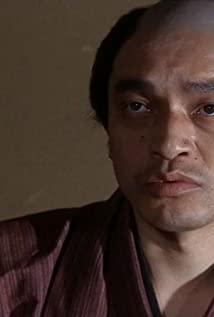With the same high rating as "Seven Samurai", I had to let this movie go. It is also a story about samurai. In "Seven Samurai" and a certain anime, I have a little understanding of samurai and that era. The background is the Japanese shogunate era, when the centralization of power weakened the power of many princes, and many samurai were forced to leave their families and become unemployed ronin. In this environment, the ronin are very poor, and many people use very despicable means to obtain money in order to make money - like Qian Qianyan begging for a daughter, they go to the prince's house and ask for the belly to be cut and be sent away with money. However, things backfired. The retainers of the Jingyi family felt that it would not be appropriate to send them away like the other feudal families, which would not only encourage this kind of extortion, but also lose face of their own family, so they decided to let the beggar cut their belly. The whole process was particularly exciting, because It was the other party's self-inflicted suffering, so it didn't feel too cruel. Seeing this, I think it's very pleasing to do this. After all, it is really annoying to cheat in the name of a samurai under the guise of being a samurai. The story here is what the Ii family said in order to drive away the second person who came over and proposed abdominal cutting, that is, the male protagonist Tsuyun Hanshiro. But looking at the old ronin Jin Yun's calm face begging for death without the slightest melancholy look, he could only take him to the front yard to perform abdominal incision. Jin Yun knelt on the mat in the center of the yard used for abdominal incision, and proposed that the Jiecuo person (the person who made up the knife after the samurai cut the abdomen) needs to be replaced, and then began to tell the story of what happened to himself while waiting for the summoning of the Jiecuo person. The camera is zoomed in from behind, making people more focused and start listening to the book. The story behind makes people feel complicated. It turns out that Qian Qianyan is his son-in-law, and he is not the timid and despicable person at the beginning. Instead, he is very righteous and follows the morality of the samurai. The act of wealth is also scorned. Despite being poor, it does not affect the happy life of their family of four. But the saddest thing happened. The arrival of the disease made it useless for the already poor family to sell all their valuables, and then Qian Qianyan embarked on a last resort. With this reason, I feel that he is also understandable and worthy of sympathy. Under such circumstances, the Jingyi family has become a bit too deceiving and impersonal. He also roughly understood Jin Yun's purpose, seeking justice for his deceased son-in-law. But looking at the back, I feel that it is not so simple. His proud warrior identity has conflicted in front of reality. If he sells his sword, his grandson may not die. The "Bushido" people forced their son-in-law to death. Therefore, in response to the previous "the fate of others today is the portrayal of you tomorrow", it is not dark It shows that the samurai class is over, and you are still holding on to the so-called "Bushido" and the dignity of samurai. The story is full of ridicule at the end, but so many samurai killed Jinyun with muskets. It also verified that the arrival of muskets ended the era of samurai. In order to protect the reputation and prestige of the Ii family, the young master made up a lie to cover up the truth, and got The clan was honored by the praise of the local high-ranking officials. Isn't this inconsistency in the face of the self-proclaimed samurai spirit. It’s been a long time since I watched a movie with such serious attention. Maybe it’s because of black and white, and the protagonist’s expressiveness is too strong, making the audience hold their breath unconsciously, and the actor’s eyes are full of drama, that kind of feeling It's like entering the inner world and following the story. Jin Yun's three times of laughter were different, and the rendering power was too strong. What is also impressive is the duel between the two masters on the plains, which is completely different from Chinese martial arts. Every knife-knife collision seems to be simple but full of scheming, and the opponent will be hacked to death as soon as a flaw is revealed. There are too many places worth studying about this movie. I can't find it yet because of my limited knowledge. I'll watch it later hh. I have to say, it was fantastic.
View more about Hara-Kiri reviews


